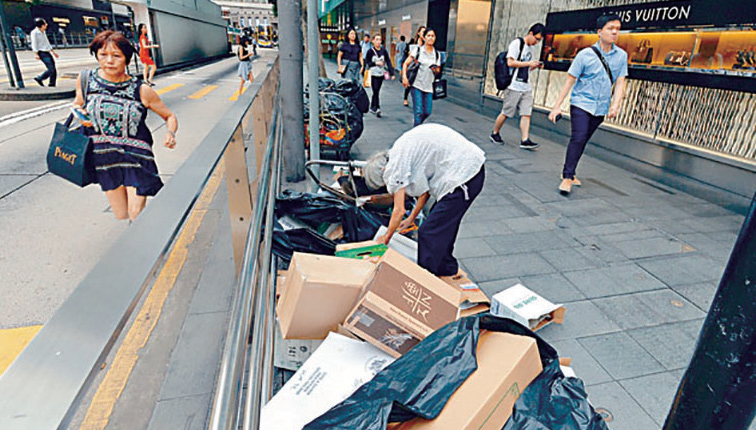Fighting wealth inequality on top of HK's 'do list'


The movie Crazy Rich Asians, set against the glitzy shopping malls in Singapore and hit the box office last month, has put the region's widening wealth gap under the spotlight.
At center stage is Hong Kong, which has the dubious reputation of having the highest level of inequality between the minority rich and the rest of the population among developed economies. A government survey in 2017 shows the richest household in the city earned about 44 times more than its poorest counterpart.
But, Hong Kong can take comfort in the fact that it ranks behind most other economies in the region in income inequality measured by the Gini coefficient ranging from 0 which denotes perfect equality to 1 that represents total inequality. The Gini coefficient for Hong Kong was a modest 0.539 compared to a lofty 0.9 for some neighboring economies.
In Thailand, for instance, about 96 percent of the wealth created in 2017 went to the top 1 percent of the population. The ratio is 79 percent for the Chinese mainland and 73 percent for India, according to a BBC report citing Oxfam's analysis.
Economists warned that inequality in Hong Kong will worsen if the imbalanced economic structure remains unchanged. The over-dependence on the highly capital intensive finance and property sectors to generate growth naturally leads to the concentration of wealth in the hands of those who own capital, while the rest of the workers are confined to low-paying jobs in the services sector.
The problem is compounded by the relentless rise in property prices, driven in recent years by abnormally low interest rates and the inflow of overseas capital that added greatly to the housing demand. The situation has created two classes of people — those who own properties and the majority, who don't and are finding it increasingly difficult to afford buying a home.
Hong Kong's free market environment offers little room for the government to get directly involved in the distribution of wealth. The lack of a universal pension scheme that can offer adequate old-age security simply makes matters worse.
The government is trying to address the inequality issue by lifting the supply of homes to enable more families to own an apartment — the asset that basically defines wealth in the land scarce city. It's seen as a battle the government cannot afford to lose.
Today's Top News
- China plans measures to further unlock demand
- No official exempt in anti-graft fight
- US youths called on to advance ties
- Japan urged to mend China ties
- Ice dragon boat race aims to bolster Sino-UK bond
- Proposed snap election in Japan would only be short-term Band-aid





























